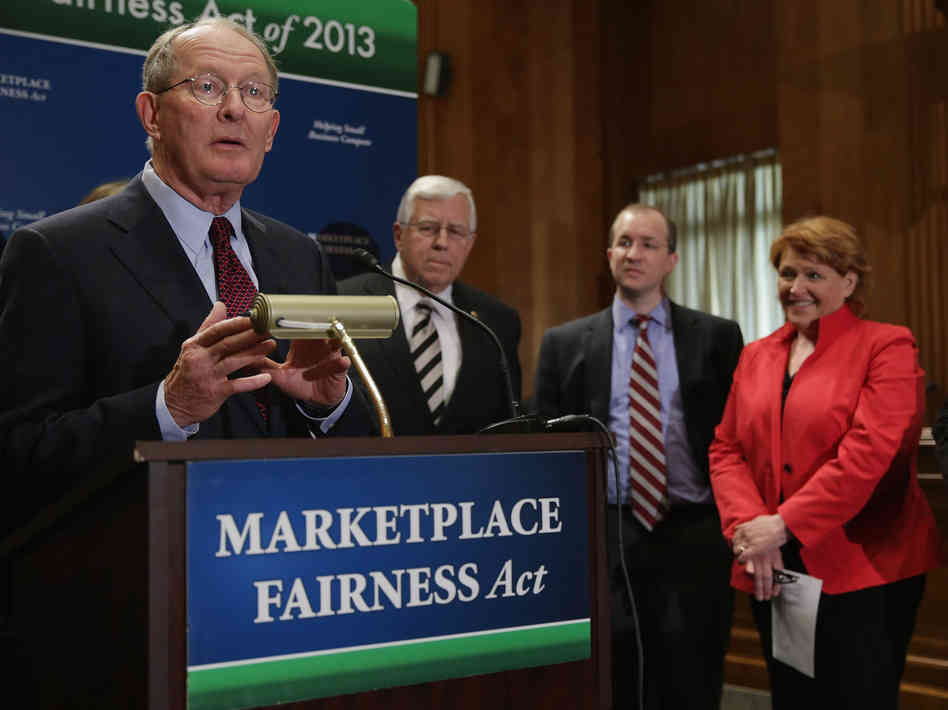In fall 2014, Speaker of the House John Boehner (R-OH) refused to allow a vote on the Marketplace Fairness Act (MFA), a bill effectively forcing online businesses to collect and remit sales taxes to cities, counties, and states in which they are not located.
The bill expired in 2014, but supporters of expanding sales tax collection beyond government borders and jurisdictions are back with a vengeance. However, MFA is as unfair to consumers and businesses now as it was then.
In the 1960s and 1970s, a series of U.S. Supreme Court rulings effectively created the modern-day concept of the “nexus.” Until its creation, states could not tax interstate commerce at all.
In one 1977 ruling, Complete Auto Transit, Inc. v. Brady, the Supreme Court ruled states could not force out-of-state businesses to pay sales taxes, creating a four-step test to determine whether an out-of-state business was engaging in commerce between states or commerce within one state only.
Businesses and people with a physical presence in a jurisdiction benefit from government services, so they should pay those for those benefits. Economists refer to the idea of an entity’s tax burden approximating the amount of services the entity consumes the “benefit principle.” Residents in the jurisdiction benefit from services, so they should be charged the value of those services, but not a penny more.
On the other side, entities outside a jurisdiction do not consume the jurisdiction’s services, and therefore should not be charged for those services.
MFA disregards that principle, using the nonphysical nature of the Internet to expand every government jurisdiction’s taxing ability into every other jurisdiction, regardless of whether an online vendor consumes any resources there or not.
Businesses in Alaska, a state with one of the lowest sales tax rates in the nation, would be forced to compensate high-tax Tennessee for Tennessee’s government services, which they don’t use. Although no government services were consumed by a Tennessean clicking “submit” on an order from that Alaskan business, the business would still be forced to pay Tennessee for the privilege of serving customers in the state.
Despite its name, MFA isn’t fair at all. Supporters of the bill claim to seek equality of tax treatment, noting stores with physical locations in a particular state have to collect sales taxes for that jurisdiction. But of course stores with no physical presence in a state don’t consume that state’s services and shouldn’t have to pay for them.
Even worse, MFA would actually demand more from online storefronts than is required of brick-and-mortar stores.
With 9,998 separate taxation jurisdictions in the United States, a business with e-commerce capability would be forced to track tax rates and exemption rules for each and every one of those jurisdictions, as well as any sales tax holidays or other variations occurring in those places.
In a brick-and-mortar store, however, a single sales tax rate is charged based on the store’s location. With MFA, sales tax rates are based on customers’ locations. In some places, customers literally next door to one another could be charged different tax rates, even if they purchased the same item at the same time.
Such absurd cases as this arise from the misapplication of 20th century ideas to 21st century technologies like e-commerce. Instead of trying to tax all things with outdated tax structures like the one that would be established by MFA, state and local governments should work to find ways tax codes can be streamlined and made fairer to the people who actually use the services taxing governments provide.
MFA stopped being “a thing” in 2014. Let it go!





